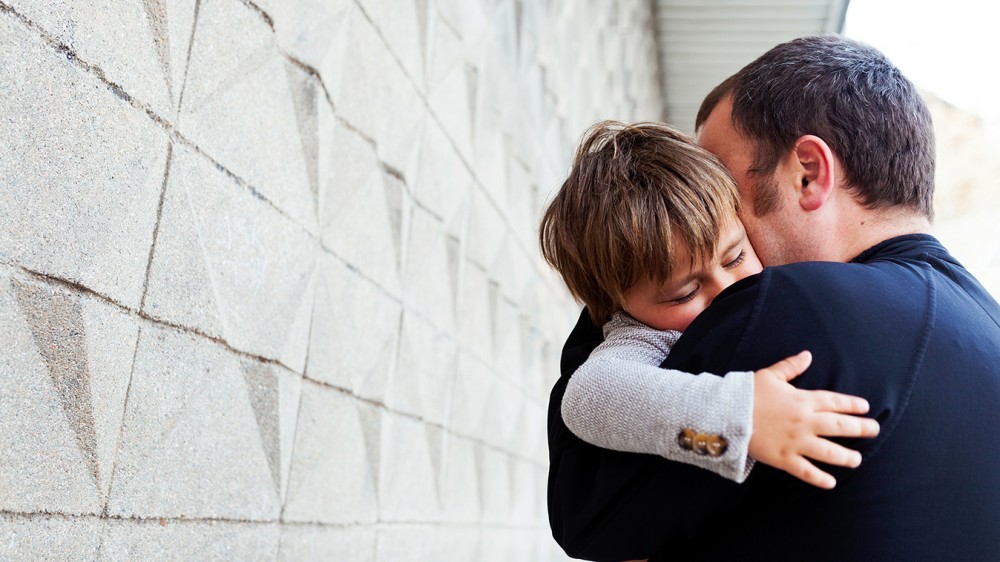Fatherhood is a powerful thing, but it is not solely a biological bond. There is also a highly formative psychological one that impacts every aspect of development, personal growth and individual happiness. Fatherhood belongs to any man who rises to the challenge of supporting, raising, and protecting a child through to adulthood, and that power is neither enhanced nor diminished by blood relation.
While having an actively involved father benefits children, being a father benefits men as well. In fact, being a father (or father figure) produces the same positive effects for men whether there are genetic ties to the child or not. According to LiveScience, ‘Taking care of a child reshapes a dad’s brain, causing it to show the same patterns of cognitive and emotional engagement that are seen in moms’ (Gholipour).
Does a child need their biological father to lead a fulfilling life?
At present, there is no scientific research that supports the idea that biology is required for good parenting, strong parent-to-child bonds, or a child’s quality of life. As The Independent, a renowned British national newspaper, points out, ‘Historically, children were brought up in multi-generational homes, with grandparents, parents and siblings all mucking in to bring up the kids. In fact, around 51 million Americans still live in a house with at least two adult generations under one roof’ (Hamilton).
Put simply, non-traditional families can still care for a child and positively impact their life. Stepfathers and other male role models are no less of a parent just because they do not share a child’s genetics, and consequently, genetics do not guarantee that the biological father will be a better parent. Grandfathers, uncles, friends, and stepfathers are all well suited to be positive male role models to a child and can assume the responsibilities of paternity.
As it turns out, being a great father doesn’t necessarily mean being the child’s true biological father; it’s really about wanting to and being there when it matters most for the child to help them grow. And even if you recently did a paternity test and found out you’re not the father, the bond you developed doesn’t have to be broken.
Great fathers provide love and nurturing
Being a great father means being involved in a child’s life. Biologically-related or not, being a father does not help the child if you are absent or neglectful. Amazing fathers nurture their relationship with unconditional love. This involves being there and spending quality, meaningful time with a child. For newborns, this might include participating in playtime, soothing them when they cry, making them laugh, taking them on walks to explore the world, and sharing responsibilities with the mother, like changing diapers .
Involvement should not stop once the child is past infancy. Playing games and going on adventures with your child as they grow older is just as important to show that you still love them and want to be part of their life.
Fathers should help their children learn and grow
Although play is important, it’s easy to fall into the role of buddy instead of father. For this reason, it is also crucial that fathers provide a voice of reason and provide gentle, but firm, discipline when necessary. Learning how to say no,creating healthy boundaries for them and with them, modeling good behavior, and guiding them to make good decisions will assist in their development, helping them grow into a happy, respectful, and responsible individual.
DNA test results won’t affect your ability to be an amazing father
Some men are hesitant to take paternity tests because they are afraid negative results might make them feel like less of a father. However, the secret to being an amazing father goes far beyond genetics. No matter what the DNA test results are, a child can have a fulfilling childhood and a strong relationship with a father who cares. Often, for a child, to know that the biology is NOT there, but the father chose to stay, or even better chose them, speaks volumes to the love and character inherent in the relationship.
The Bottom Line
For some men, knowing that they are indeed a child’s biological father helps them become more actively involved in the child’s life. Even when a DNA test shows they are NOT the father, some men choose to legally adopt so they can protect their rights as a father and secure their relationship with the child involved.
Fatherhood is so much more than a DNA test result, and there is nothing to fear from discovering the truth.
Get a paternity test kit today.
What do you think about this topic? Let us know in the comments below.
Follow us on Facebook and Twitter! If you have questions about paternity tests or other DNA testing services, please contact our Customer Service Center at 888-404-4363, Mon-Fri from 8:30 AM to 5:30 PM Eastern Time. Our friendly, expert representatives are ready and happy to help. Get answers anytime by visiting our Help Center.
Sources
Gholipour, By Bahar. “5 Ways Fatherhood Changes a Man’s Brain.” LiveScience. TechMedia Network, 14 June 2014. Web. 04 June 2015. <http://www.livescience.com/46322-fatherhood-changes-brain.html>.
Hamilton, Chloe. “You Don’t Need Both Biological Parents to Raise a Family.” The Independent. Independent Digital News and Media, 13 Jan. 2014. Web. 04 June 2015. <http://www.independent.co.uk/voices/comment/you-dont-need-both-biological-parents-to-raise-a-family-9056956.html>.








Atakora offeh says
My lady lie to my and I don’t thing I am the biological father. Pls help me
Identigene says
Hi, Atakora. You may want to contact a paternity-testing company in your country. Good luck!